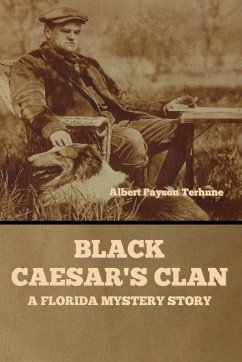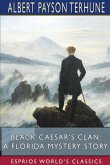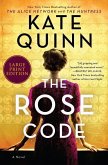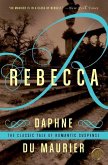Albert Payson Terhune (December 21, 1872 - February 18, 1942) was an American author, dog breeder, and journalist. He was popular for his novels relating the adventures of his beloved collies and as a breeder of collies at his Sunnybank Kennels, the lines of which still exist in today's Rough Collies. Albert Payson Terhune was born in New Jersey to Mary Virginia Hawes and the Reverend Edward Payson Terhune. His mother, Mary Virginia Hawes, was a writer of household management books and pre-Civil War novels under the name Marion Harland. Terhune had four sisters and one brother, though only two of his sisters lived to be adults: Christine Terhune Herrick (1859-1944); and Virginia Terhune Van De Water (1865-1945). Sunnybank (41.0012°N 74.2755°W) was originally the family's summer home, with Terhune making it his permanent residence in 1912. He was educated at Columbia University where he received a Bachelor of Arts degree in 1893. From 1894 to 1916, he worked as a reporter for The Evening World. He boxed exhibition matches with James J. Corbett, Bob Fitzsimmons and James J. Jeffries. His Sunnybank Kennels where he bred and raised rough collies were "the most famed collie kennels in the U.S." Albert Payson Terhune first published short stories about his collie Lad, titled Lad Stories, in various general-interest magazines, including Red Book, Saturday Evening Post, Ladies' Home Journal, Hartford Courant, and the Atlantic Monthly. The first of his novels about his dogs, Lad: A Dog, collected a dozen stories of his collie Lad in novel form. Lad was followed by over 30 additional dog-focused novels, including two additional books about Lad. Published in 1919, the novel was a best seller in both the adult and young adult markets and has been reprinted over 80 times. It was adapted into a feature film in 1962. A man of his time, Terhune is now often criticized for his starkly racist depictions of the minorities, hill people and so-called "half-breeds" that peopled parts of northern New Jersey less idealized than Sunnybank.(Wikipedia)
Hinweis: Dieser Artikel kann nur an eine deutsche Lieferadresse ausgeliefert werden.
Hinweis: Dieser Artikel kann nur an eine deutsche Lieferadresse ausgeliefert werden.









